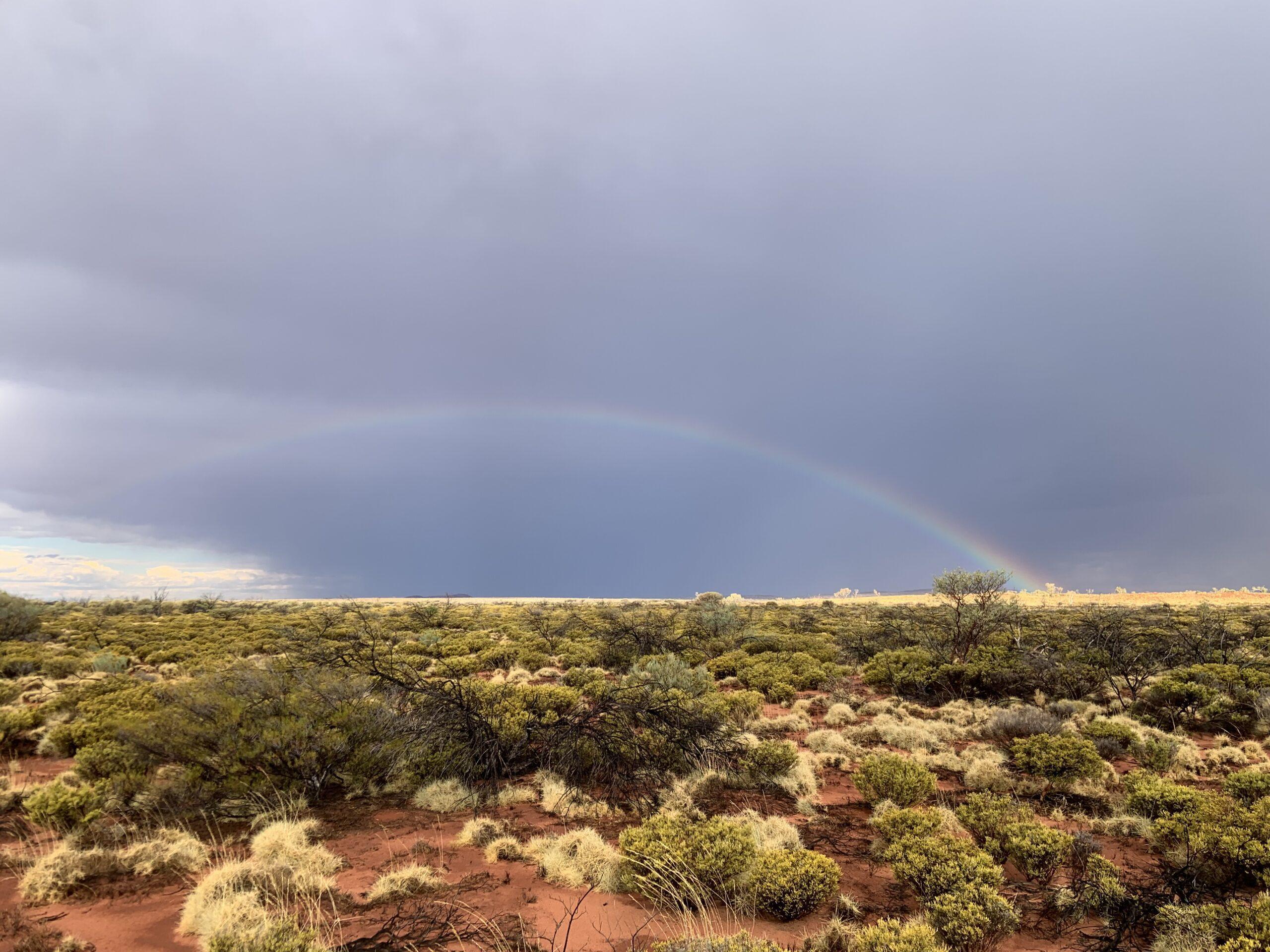Project start date: 01/04/2024
Project end date: 31/03/2027
NESP funding: $300,000 (GST-exclusive)
Climate change is causing increasingly widespread and severe impacts on Australian environments. There’s a growing need to shift from ‘responding’ to threats, to proactively preventing the worst outcomes through pre-emptive planning and action.
This project is identifying tools and strategies that improve the resilience of our landscapes. We are consulting with Traditional Custodians to determine which ecosystem elements of high ecological or cultural value are most at risk, then applying the Resist, Accept, Direct (RAD) Framework.

Rainbow over Dja Dja Warrung Country, BHA Reserve. Photo: John Douglas Block.
The RAD Framework lays out three approaches to making management decisions for ecosystems undergoing transformation:
Decisions about which of the three RAD approaches to implement in different areas will be informed by workshops (eco-thons) involving Traditional Custodians and other local experts. Eco-thons will be prioritised to co-design specific strategies for pro-active, solution-oriented management at scale in line with the RAD approaches. The outputs of the eco-thons will be immediately peer-reviewed by Traditional Custodians and the diverse array of experts who help to design the solutions. The interventions will be prioritised (including benefits, costs, feasibility and risks) and communicated broadly for review and optimisation. This is done to avoid adverse impacts and further test the strongest ideas. Traditional Custodians will have right of veto of any idea through the process.
This culturally relevant, evidence-based, transparent approach will raise awareness, enthusiasm and funding for the proactive measures that will be much-needed in the coming years as we adapt to climate change.
Key research areas
To proactively develop solutions to climate change driven environmental threats, this project is:
No resources found.
Project leader
The project is being led by Dr Rebecca Spindler from Bush Heritage Australia, and Hedley Grantham from Bush Heritage Australia and the University of New South Wales.
Contact
For further information, contact rebecca.spindler@bushheritage.org.au, hedley.grantham@bushheritage.org.au and nesplandscapes@uwa.edu.au.
Research users
People